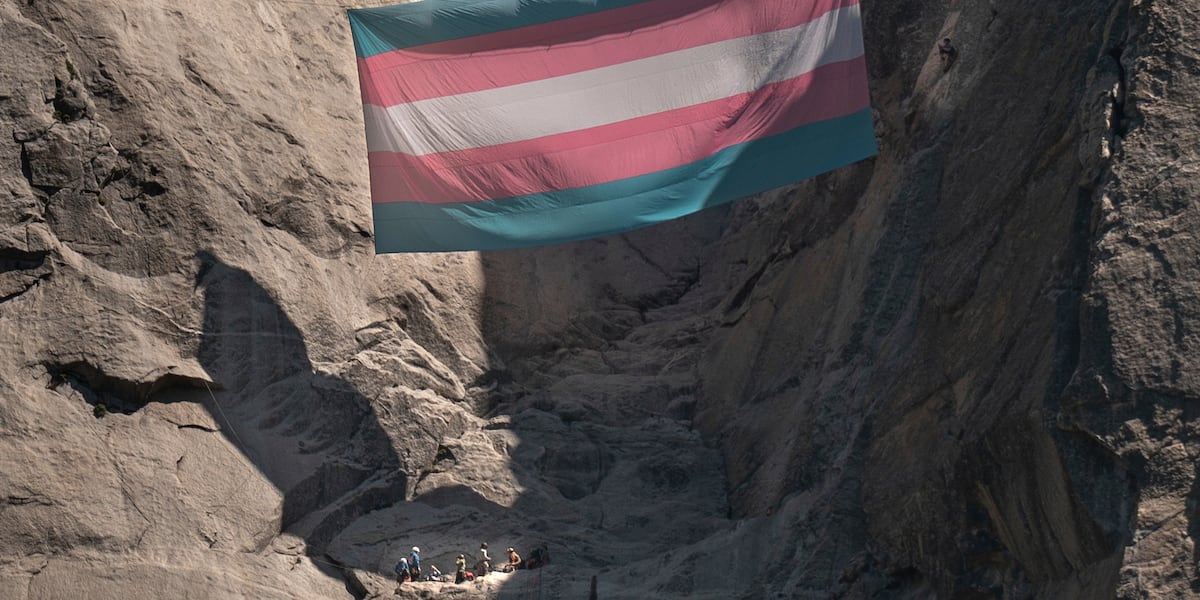Why Was a National Park Ranger Fired for Displaying a Transgender Flag in Yosemite?

This article explores the recent controversy surrounding the firing of a Yosemite National Park ranger who hung a transgender pride flag from El Capitan. The incident has raised questions about expression, federal employment, and the evolving regulations around protests in national parks.
Last updated: 29 October 2023 (BST)
Key Takeaways
- Yosemite ranger Shannon Joslin was fired for displaying a transgender pride flag.
- The incident occurred on May 20, 2025, and lasted about two hours.
- A new rule limits flag displays in 94% of the park to protect its wilderness.
- Joslin's action has sparked discussions about identity and federal employee rights.
- Protests in national parks are subject to strict regulations, with designated areas for demonstrations.
The Incident at El Capitan
On 20 May 2025, Shannon “SJ” Joslin, a Yosemite National Park ranger and biologist, displayed a 66-foot wide transgender pride flag on the iconic climbing wall of El Capitan. This act was intended as a personal statement of identity and safety, particularly in light of policies perceived as hostile to transgender individuals by the Trump administration.
Joslin's action, which lasted for about two hours before they voluntarily removed the flag, was met with both support and backlash. In the wake of the incident, park officials took swift action, leading to Joslin's termination on the grounds of "failing to demonstrate acceptable conduct." This has raised significant concerns about the rights of federal employees to express their identities and beliefs in their personal time.
Background Context
Joslin described their motivation for hanging the flag as a personal response to the prevailing political climate. “I was really hurting because there were a lot of policies coming from the current administration that target trans people, and I’m nonbinary,” Joslin said. Their termination letter highlighted a perceived breach of conduct, sparking debates about the implications for federal employees who may feel pressured to remain silent about their identities or beliefs.
Federal Regulations and Park Policies
In the aftermath of Joslin's actions, Yosemite National Park implemented new restrictions aimed at controlling demonstrations. Acting Superintendent Ray McPadden signed a rule prohibiting displays exceeding 15 square feet in areas designated as “wilderness” or “potential wilderness,” which covers approximately 94% of the park.
The National Park Service (NPS) has stated that these measures were necessary to protect both the park's natural resources and the experiences of its visitors. Spokesperson Rachel Pawlitz remarked, “We take the protection of the park’s resources and the experience of our visitors very seriously.” This policy shift follows prior incidents, including a controversial display of an upside-down American flag that occurred earlier in the year, which further contributed to the tightening of protest regulations.
Public Reaction and Support
The display of the transgender pride flag has garnered varied responses from the public and advocacy groups. Pattie Gonia, a drag queen and environmentalist involved in the flag installation, described the action as a necessary step to affirm that being transgender is natural. She emphasised the importance of visibility and support for the transgender community, especially in spaces typically perceived as traditional or conservative.
Gonia and other supporters believe Joslin's termination was unjust, stating that it sends a chilling message to other federal employees that expressing one's identity could lead to repercussions. Many see Joslin as a respected figure in the Yosemite community, known for their contributions beyond their official duties.
Implications of Joslin's Firing
The impact of Joslin's firing extends beyond a single incident; it may influence how federal employees approach self-expression within their workplaces, particularly in national parks. Advocacy groups, including Public Employees For Environmental Responsibility, have expressed concern that this incident signals a broader pattern of intimidation against federal employees who wish to express their identities or opinions.
Jayson O’Neill from the advocacy group Save Our Parks echoed this sentiment, suggesting that the case is emblematic of a larger trend under the Trump administration, which has seen significant cuts to the National Park Service’s workforce and budget. Since the beginning of Trump's presidency, the NPS has lost approximately 2,500 employees, which raises concerns about the operational capacity and morale within the agency.
Understanding Protest Regulations in National Parks
National parks in the United States, including Yosemite, have long-standing regulations governing protests and demonstrations. These rules are designed to balance the rights of individuals to express their views with the need to protect the park's natural environment and maintain visitor safety. Yosemite features designated “First Amendment areas” where small groups can gather for protests without requiring a permit.
Despite these designated areas, the recent enforcement of stricter regulations has led to confusion and concern among park visitors and employees alike. Many wonder whether the new policies will stifle free expression in national parks, which have historically been viewed as spaces for open dialogue and demonstration.
The Role of National Parks in Social Movements
National parks have often served as backdrops for significant social movements and expressions of identity. The ability to gather, protest, and express dissent is integral to the freedom of speech, a cornerstone of American democracy. As such, the ongoing developments surrounding Joslin's case may influence future actions and the policies governing demonstrations within these cherished spaces.
What’s Next for Joslin and Yosemite National Park?
As Joslin’s case unfolds and inquiries into the actions of the other rangers involved continue, the future of protest policies in national parks remains uncertain. Advocacy groups are likely to challenge the new regulations, potentially leading to further legal scrutiny of how these rules align with First Amendment rights.
The outcome of this situation may not only affect the individuals involved but could also set precedents for how federal employees navigate their identities and beliefs in the context of their professional roles. As discussions around LGBTQ+ rights continue to evolve, the implications of Joslin's firing may resonate far beyond the boundaries of Yosemite National Park.
Conclusion
The incident involving Shannon Joslin and the transgender pride flag at El Capitan underscores the complexity of identity, expression, and regulation within federal spaces. As policies continue to adapt in response to political climates, the balance between individual rights and institutional regulations remains a critical discussion point.
How parks manage these tensions will likely shape the experiences of visitors and employees alike in the years to come. What does this incident mean for the future of expression in national parks? The evolving landscape of rights and regulations will be closely watched by advocates and park-goers alike. #LGBTQRights #NationalParks #FreeExpression
FAQs
What happened to Shannon Joslin at Yosemite National Park?
Shannon Joslin was fired after hanging a transgender pride flag from El Capitan, which park officials deemed unacceptable conduct. The incident has sparked discussions about identity and employee rights within federal agencies.
Why did Yosemite National Park implement new protest regulations?
The new regulations were introduced to preserve the park’s wilderness and protect visitors' experiences. They limit the size of flags and banners displayed in most areas of the park.
What is the significance of El Capitan in this context?
El Capitan is an iconic climbing wall in Yosemite National Park, serving as a traditional site for expressions of protest and identity, making the flag display there particularly impactful.
How have advocacy groups responded to Joslin's firing?
Advocacy groups have condemned Joslin's firing as unjust and indicative of broader intimidation tactics against federal employees expressing their identities, particularly within the current political climate.
What are “First Amendment areas” in national parks?
First Amendment areas are designated spaces within national parks where individuals can gather for protests without needing a permit, allowing for free expression in these public spaces.
Published: 2025-08-20 02:33:33 | Category: Trump GNEWS Search



